This article first appeared in the May/Jun 2014 issue of World Gaming magazine.
Despite its rare natural beauty, a people renowned for their sunny disposition and an annual festival commonly referred to as the greatest show on earth, it’s been a far from easy road to the World Cup for Brazil as it tries to downplay recent outbreaks of violence and concerns over the widespread poverty that continues to grip the nation. Could the World Cup be the lucky break they need?
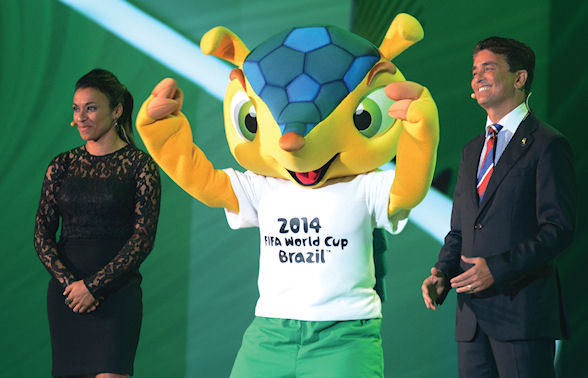
When we think of Brazil, we inevitably think of the sun and the surf, lounging on the beach and of course its famous Carnival. With a coastline stretching almost 7,500 kilometres and a climate that is mostly tropical, Brazil comes across as a universally festive place and one that many of us dream of visiting to soak up some of that jovial cheer. Yet as South America’s largest country with a population of over 190 million, there is much more than meets the eye.
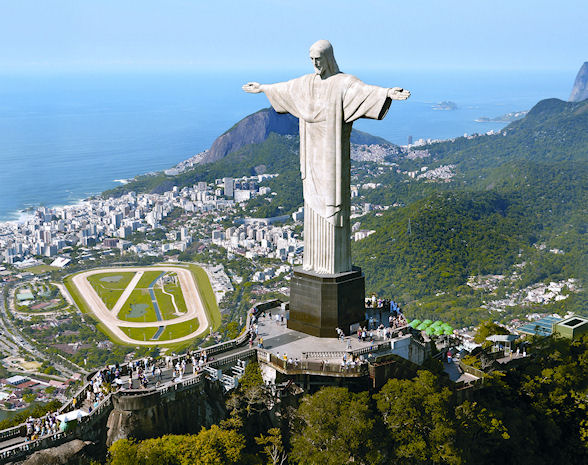
Brazil is a nation of extremes. On the one hand it is a significant global power in terms of industry and agriculture – the seventh largest economy in the world and easily the biggest in Latin America. Blessed with abundant natural resources, it has undergone a period of steady growth over the past decade and is renowned as a world leader in car manufacturing, coffee and oil exports. Brazil is also the world’s largest exporter of orange juice with an incredible 55 percent of total global exports, soybean with 41 percent and raw sugar cane and refined sugar with 35 percent.
On the other hand, it is a country plagued by poverty – particularly in rural areas. Around 35 percent of Brazil’s people live in extreme poverty earning less than US$2 per day, but this figure grows to 51 percent in rural areas. In these regions, particularly in the country’s north-east, people have limited access to education, inadequate water supplies and more often than not no health facilities. Most live day to day, their small farms barely enough to feed the family let alone earn a living.
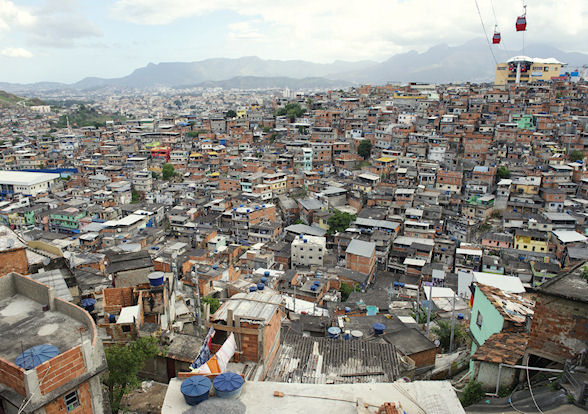
To their credit, the Brazilian government has been working hard to reduce poverty rates and despite those shockingly high statistics listed above, it has enjoyed considerable success in recent years. Ten years ago Brazil implemented the Bolsa Familia cash transfer program – a controversial “experiment” which sees the government basically give money to around 14 million families identified as living below the poverty line.
Money is loaded onto a magnetic card once a month and although there are no restrictions on how that money is spent, it is dependent upon the kids going to school with strict attendance requirements in place. While many rightly argue these measures barely scratch the surface of Brazil’s poverty problem, the results of the program have been surprisingly positive with infant mortality rates dropping significantly and the kids involved performing above the national school average.
Brazil comprises a total of 26 states, each with its own local government, as well as one Federal District encompassing the country’s capital city, Brasilia. All are overseen at a national level by the federal government, which is currently headed by Brazil’s first ever female President, Dilma Rousseff.
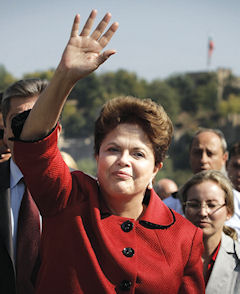
Brazil’s President Dilma Rousseff
Rouseff has a colourful and somewhat controversial history. In her early 20s she became actively involved with militant group Colina (the National Liberation Command). Colina was known to be involved in bank robberies, bombings and various revolutionary crimes. Her role included the transportation of money and weapons throughout Brazil although it has also been reported that she soon became one of the group’s primary political masterminds.
In 1970, Rousseff was one of a number of members arrested at a bar in São Paulo with her capture considered to be a huge coup by police and military leaders.
She allegedly suffered the torture of beating and electric shocks for 22 consecutive days and spent three years in jail before being released in 1973 with her political rights suspended for a further 18 years.
Having wasted no time returning to politics once that 18 years was up, she rose through the ranks and was elected Brazil’s 36th President in 2010. This year’s World Cup comes just a few months before the country returns to the polls with the general elections to be held on 5 October. Much like the United States, the elected President serves a four year term with a maximum of two terms allowed.
Rousseff has had her work cut out for her in the lead-up to the World Cup. Aside from the aforementioned poverty issues, Brazil also has a reputation for being one of the most dangerous places in the world to visit with a murder rate that has doubled over the past 30 years. Tourists are also known to be targeted for theft, particularly during Carnival when around 2 million people flood the streets every day.
Despite the dangers, more than 5 million visitors arrive in Brazil each year – many of them specifically to witness the spectacle that is Carnival – and who wouldn’t want to be a part of the biggest party in the world? Held annually on the weekend before the start of lent, Carnival sees celebrations take place right across the country but is most famous for Rio de Janeiro’s samba competition which sees the city’s top samba groups each delivering an unforgettable hour-long display as they battle it out to be crowned the winner. Rio’s tourism board estimated this year’s Carnival brought in around US$420 million in Rio alone – more than US$300 million of which was from tourists.
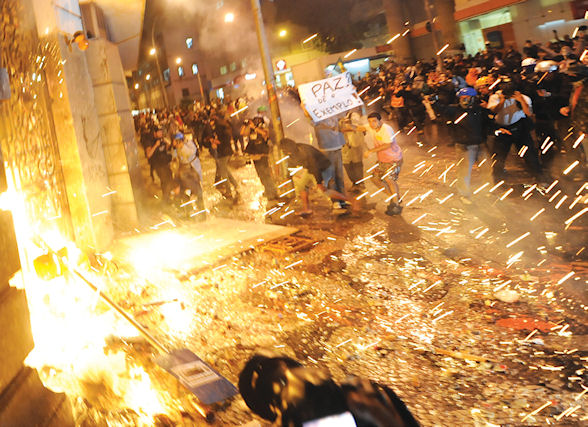
Brazil is also renowned for its natural beauty and for the intrepid traveller it is home to at least half a dozen sights that are on many a “must see” list. Rio’s long beaches, filled from end to end with the country’s seemingly endless “beautiful people”, are spectacular and a great place to find relief from the tropical heat. Look up and you’ll see the famous Christ the Redeemer stature staring down from the top of Corcovado Mountain.

The Iguazu Falls, on the border between Brazil and Argentina, is listed as one of the “New Seven Wonders of Nature” and consists of 275 different falls along the Iguazu River.
And of course there is the Amazon. The magnificent Amazon Rainforest covers an area of around 5.5 million square kilometres of which 60 percent sits in Brazil, while the Amazon River itself has long been the stuff of legend thanks to stories of cannibalistic tribes, man-eating fish and giant anaconda. Although you are highly unlikely to have your head chopped off and your liver sautéed for lunch these days, the Amazon does remain one of the world’s great havens for weird and wonderful wildlife which is no surprise given that it is 6,437 kilometres long and accounts for one-fifth of the world’s total river flow!
With tourism becoming an increasingly important part of Brazil’s economic future, 2014 represents the start of a crucial few years. With the World Cup kicking off on 12 June and the Olympics following in 2016, this is Brazil’s great chance to show the world exactly what it’s got to offer.
It also presents a unique opportunity domestically. The lead-up to this World Cup has been anything but smooth sailing with concerns over construction deadlines compounded by widespread strike action and violent protests from a faction of society who believes the US$14.5 billion spent to host the event would have been better allocated to much-needed infrastructure.
But if there is one thing we know about Brazilians, it is that they love their football. The Brazilian national team represents the hopes and dreams of a nation and their record is unparalleled, having won the World Cup a record five times and qualified for each and every tournament – the only country to have done so. Kids grow up playing football on the streets and it is common for entire cities to shut down completely whenever Brazil is playing an important game. As for the players – Ronaldo, Zico, Ronaldinho, Socrates, Romario and, of course, Pele rank among the greatest of all time.
So, for all the difficulties, the controversy and the widespread confusion over exactly what to expect from the 2014 World Cup, it could prove to be the missing link when it comes to achieving what nothing else has been able to and bring the Brazilian people together as one.







